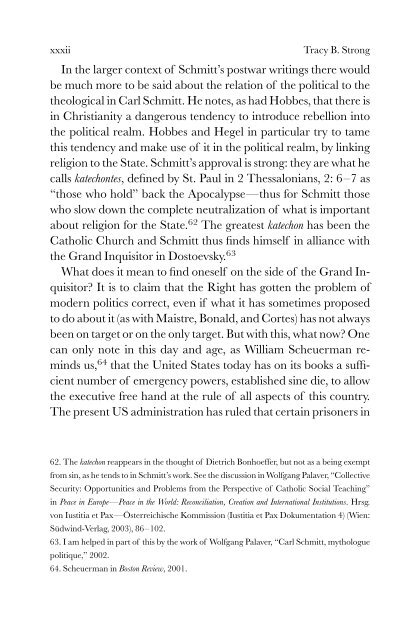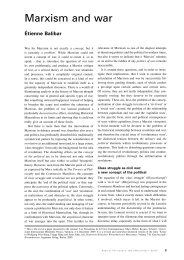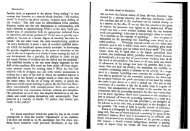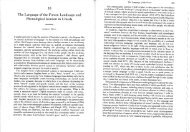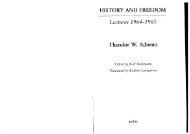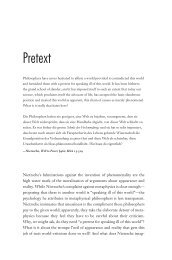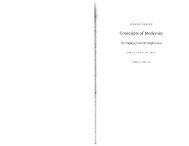Schmitt-Political Theology I.pdf - Townsend Humanities Lab
Schmitt-Political Theology I.pdf - Townsend Humanities Lab
Schmitt-Political Theology I.pdf - Townsend Humanities Lab
Create successful ePaper yourself
Turn your PDF publications into a flip-book with our unique Google optimized e-Paper software.
xxxii Tracy B. Strong<br />
In the larger context of <strong>Schmitt</strong>’s postwar writings there would<br />
be much more to be said about the relation of the political to the<br />
theological in Carl <strong>Schmitt</strong>. He notes, as had Hobbes, that there is<br />
in Christianity a dangerous tendency to introduce rebellion into<br />
the political realm. Hobbes and Hegel in particular try to tame<br />
this tendency and make use of it in the political realm, by linking<br />
religion to the State. <strong>Schmitt</strong>’s approval is strong: they are what he<br />
calls katechontes, defined by St. Paul in 2 Thessalonians, 2: 6–7 as<br />
“those who hold” back the Apocalypse—thus for <strong>Schmitt</strong> those<br />
who slow down the complete neutralization of what is important<br />
about religion for the State. 62 The greatest katechon has been the<br />
Catholic Church and <strong>Schmitt</strong> thus finds himself in alliance with<br />
the Grand Inquisitor in Dostoevsky. 63<br />
What does it mean to find oneself on the side of the Grand Inquisitor?<br />
It is to claim that the Right has gotten the problem of<br />
modern politics correct, even if what it has sometimes proposed<br />
to do about it (as with Maistre, Bonald, and Cortes) has not always<br />
been on target or on the only target. But with this, what now? One<br />
can only note in this day and age, as William Scheuerman reminds<br />
us, 64 that the United States today has on its books a sufficient<br />
number of emergency powers, established sine die, to allow<br />
the executive free hand at the rule of all aspects of this country.<br />
The present US administration has ruled that certain prisoners in<br />
62. The katechon reappears in the thought of Dietrich Bonhoeffer, but not as a being exempt<br />
from sin, as he tends to in <strong>Schmitt</strong>’s work. See the discussion in Wolfgang Palaver, “Collective<br />
Security: Opportunities and Problems from the Perspective of Catholic Social Teaching”<br />
in Peace in Europe—Peace in the World: Reconciliation, Creation and International Institutions. Hrsg.<br />
von Iustitia et Pax—Österreichische Kommission (Iustitia et Pax Dokumentation 4) (Wien:<br />
Südwind-Verlag, 2003), 86–102.<br />
63. I am helped in part of this by the work of Wolfgang Palaver, “Carl <strong>Schmitt</strong>, mythologue<br />
politique,” 2002.<br />
64. Scheuerman in Boston Review, 2001.


